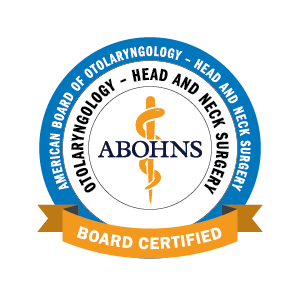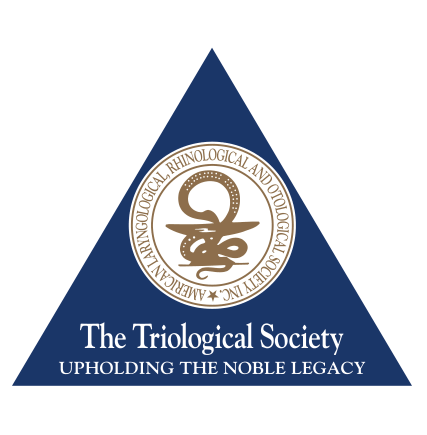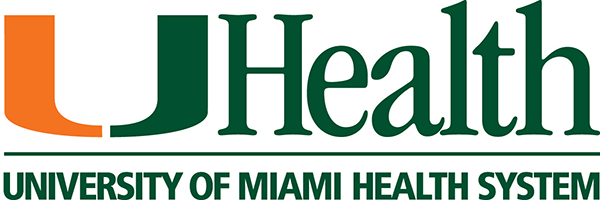Meet Michael Ghiam MD
Expert in Sinonasal Health

Academic Societies




Affiliations



Education




Dr. Michael Ghiam is a board-certified Otolaryngologist and Head and Neck Surgeon, with specialized fellowship training in Rhinology and Skull Base Surgery in Los Angeles. He offers comprehensive, personalized care for all ear, nose, and throat conditions including related hearing, balance, allergies, sinuses, voice, throat, and head and neck cancer issues, serving both adult and pediatric patients.
His rigorous academic path began at Vanderbilt University, where he completed his medical training on a prestigious scholarship. This journey continued at the University of Miami and Jackson Memorial Hospital, where he undertook a residency in Otolaryngology and Head and Neck Surgery. Exposure to severe sinonasal issues and intricate skull base pathologies further drove Dr. Ghiam to enhance his expertise, leading him to a distinguished fellowship in Rhinology and Skull Base Surgery at Cornell Medical Center and Columbia University Medical Center at New York Presbyterian Hospital.
Dr. Ghiam is proficient in addressing complex sinonasal issues and skull base problems, including but not limited to, recalcitrant chronic sinusitis necessitating revision surgery, sinus polyps, septal deviation, nasal congestion, benign and malignant tumors of the nose and sinuses, cerebrospinal fluid leaks, meningoceles, skull base reconstruction, pituitary tumors, and brain tumors. His collaborative approach, working with other specialists such as neurosurgeons, oculoplastic surgeons, allergists, and pulmonologists, assures comprehensive multidisciplinary care for complex conditions.
His unique skill set in minimally invasive techniques has earned him collaborations with numerous neurosurgeons in the Los Angeles area. Currently, he provides care to patients with complex conditions at three separate hospitals, including Cedars Sinai Medical Center in Los Angeles, Tarzana Medical Center, and West Hills Hospital.
In the realm of Chronic Sinusitis, Dr. Ghiam employs a patient-directed, holistic approach, particularly beneficial for patients with recurrent sinusitis or previous unsuccessful surgeries. Utilizing the most current, medically proven therapies, he ensures the best patient outcomes.
Moreover, Dr. Ghiam's commitment to academia and teaching is unparalleled. With over 20 peer-reviewed publications, regular lectures and presentations at national meetings, and serving on expert panels, he makes significant contributions to the scientific community. His mentorship role as the academic chief during his residency is a testament to his dedication to teaching.
Dr. Ghiam holds affiliations with several national societies, including the American Board of Otolaryngology and Head and Neck Surgery, American Rhinologic Society, Triological Society, and the North American Skull Base Society. His passion for his patients, commitment to academic excellence, and the relentless pursuit of the best possible outcomes make Dr. Ghiam a respected leader in his field.
About ENT
---Otolaryngologist ---
An otolaryngologist, commonly referred to as an ENT (Ear, Nose, and Throat) specialist, is a medical professional specializing in the diagnosis and treatment of conditions affecting the ears, nose, and throat, as well as related areas of the head and neck. These specialists can manage diseases, physical disorders, and injuries, and also perform surgical procedures when necessary.
Conditions Otolaryngologist commonly treat include:
- Ear Conditions: This includes hearing loss, ear infections, balance disorders, tinnitus (ringing in the ears), and certain cranial nerve disorders, as well as congenital (birth) disorders of the outer and inner ear.
- Nose Conditions: Chronic sinusitis, allergies, problems with sense of smell, and difficulties with breathing or nasal congestion fall under this category. They also manage cosmetic and functional disorders of the nose (rhinoplasty).
- Voice and Throat Conditions: Diseases of the larynx (voice box) and the upper digestive tract, including the esophagus, which can affect voice, speech, and swallowing.
- Head and Neck Conditions: These include infectious diseases, benign and malignant (cancerous) tumors, facial trauma, and deformities of the face. They can also perform cosmetic and reconstructive surgery in this area.
As for the services an otolaryngologist provides, they include but are not limited to:
- Comprehensive Medical and Surgical Care: For individuals with illnesses or injuries related to the ear, nose, throat, head, and neck.
- Hearing Assessment and Rehabilitation: This includes cochlear implants and treatment of other conditions that can lead to hearing loss.
- Allergy Management: This can involve both medication and immunotherapy (allergy shots) to manage and treat allergies affecting the ENT region.
- Pediatric ENT Care: Treating birth defects of the head and neck and developmental issues in children.
- Sleep Medicine: This covers treatment of sleep disorders, including sleep apnea and snoring.
- Voice and Swallowing Management: This includes speech therapy and treatment for conditions like dysphagia (difficulty swallowing).
- Facial Plastic and Reconstructive Surgery: Addressing cosmetic, functional, and reconstructive issues of the face and neck.
Remember, otolaryngologists have a broad base of expertise. If you experience any persistent issues with your ears, nose, throat, or related areas of your head and neck, it is a good idea to seek advice from a professional in this field such as Dr. Ghiam.
About Rhinologist and Skull Base Surgeons
---Specialist---
A rhinologist is a type of otolaryngologist or ENT (Ear, Nose, and Throat) specialist who has additional training in treating diseases and conditions of the nose, sinuses, and anterior skull base. This includes both benign (non-cancerous) and malignant (cancerous) diseases.
Endoscopic skull base surgeons are highly specialized medical professionals who diagnose and treat a variety of conditions affecting the base of the skull using minimally invasive techniques. The base of the skull, also known as the cranial base, is a complex area where the brain connects to the spinal cord and where numerous nerves and blood vessels pass.
Rhinologists and skull base surgeons often use minimally invasive techniques to treat diseases. This includes endoscopic surgery, where a small camera (endoscope) is inserted into the nose, providing a detailed view of the nasal passages and the skull base. This allows the surgeon to perform complex procedures through the nose, without external incisions, reducing the recovery time and risks associated with open surgery.
Collaboration is a crucial aspect of their work. Rhinologists and skull base surgeons frequently collaborate with other specialists such as allergists, pulmonologists, neurosurgeons, ophthalmologists, and oncologists to ensure comprehensive care for their patients.
The conditions that rhinologists and skull base surgeons treat include:
- Chronic Sinusitis: Persistent inflammation of the sinuses lasting longer than 12 weeks.
- Nasal Polyps: Noncancerous growths in the lining of the nasal passage or sinuses.
- Deviated Septum: When the thin wall between your nostrils is displaced to one side.
- Sinus and Nasal Tumors: Both benign and malignant tumors in the sinuses or nasal passages.
- Cerebrospinal Fluid Leak: Where the fluid surrounding the brain leaks into the nose or ears.
- Pituitary Tumors: Tumors in the pituitary gland at the base of the brain.
- Skull Base Tumor: Abnormal growths on the bottom part of the brain or inside the skull.
- Meningoceles: Protrusions of the meninges, the membranes that cover the brain and spinal cord, through openings in the skull or spine.
As for the services they provide, these specialists can offer:
- Comprehensive evaluation and management of nasal and sinus disorders.
- Endoscopic sinus surgery: A minimally invasive procedure to clear blocked sinuses.
- Skull base surgery: Using endoscopic techniques to treat conditions at the base of the skull.
- Tumor removal: Surgical removal of benign or malignant tumors of the sinuses or skull base.
- Septoplasty: Surgery to correct a deviated septum.
- CSF leak repair: Repairing leaks of cerebrospinal fluid.
- Balloon Sinuplasty: A minimally invasive procedure to open up blocked sinus passages.
Endoscopic skull base surgery is a technique that involves the use of a small, flexible tube with a light and camera attached to it (an endoscope). This endoscope is inserted through the nose and sinuses, providing the surgeon with detailed images that guide the surgical procedure. These techniques do not require external incisions, which reduces recovery time, lessens pain and discomfort, and minimizes risks associated with traditional open surgery.
Surgeons use these minimally invasive endoscopic techniques to treat a variety of conditions and pathologies, including:
- Tumors of the Sinuses and Skull Base: These can be both benign (non-cancerous) or malignant (cancerous) growths in the sinuses or at the base of the skull.
- Pituitary Tumors: The pituitary gland, located at the base of the brain, can develop tumors which often affect hormone production. Endoscopic techniques allow these to be removed with minimal disturbance to surrounding structures.
- Cerebrospinal Fluid Leaks: Cerebrospinal fluid (CSF) surrounds the brain and spinal cord, and sometimes, due to injury or disease, this fluid can leak into the sinuses or nasal cavity. Skull base surgeons can repair these leaks endoscopically.
- Meningoceles and Encephaloceles: These are conditions where the membranes that cover the brain and spinal cord, or the brain tissue itself, protrude through defects in the skull.
- Sinonasal Malignancies: These are cancers that occur in the sinuses or nasal cavity. Skull base surgeons often work alongside oncologists to provide comprehensive care for these conditions.
- Skull Base Fractures: Injuries to the base of the skull can sometimes be managed with endoscopic techniques.
Endoscopic skull base surgery often involves a team of surgeons, including ENT surgeons and neurosurgeons, working together. They collaborate to plan and perform these complex surgeries, ensuring the best possible patient outcomes.
While endoscopic skull base surgery offers many benefits, it's essential to remember that every surgical procedure carries some degree of risk. As such, it's crucial to have a detailed discussion with your healthcare provider to understand the benefits and risks associated with your particular situation.
Remember, these specialists like Dr. Ghiam are highly skilled and have undergone rigorous training. If you have any persistent or severe issues with your nose, sinuses, or are facing symptoms like persistent headaches, vision changes, facial numbness, or difficulty with balance, consider seeing a rhinologist or skull base surgeon.
Academic Societies




Affiliations



Education




